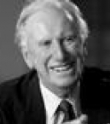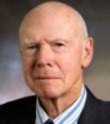Did you find Bob Carr's 'Diary of a Foreign Minister' enlightening?

Question: Did you find Bob Carr’s ‘Diary of a Foreign Minister’ enlightening? What did you take away that was valuable?
 James Cotton FAIIA | Bob Carr’s memoir is a fascinating read. Much media commentary on his book has focused on two elements: his various asides on his personal dietary and exercise regimes (many readers will discover ‘steel-cut oats’ for the first time), and the extent to which he retails conversations and communications that his interlocutors must have considered confidential at the time.On the former, aside from the undoubted element of self-parody (or perhaps narcissism), these asides give the book a personal structure and engagement that it would otherwise lack. On the latter there are few striking revelations, but there must be some discomfort experienced by those still serving foreign ministers whose comments in bilateral and multilateral exchanges are now retailed. Carr would have been advised to follow the precedent of Neal Blewett, who waited five years before publishing his (witty and insightful) cabinet diary, by which time many of the figures concerned were no longer in active politics. With this caveat aside, all of this material nevertheless provides an immediacy that is normally lacking in the genre of diplomatic memoirs. Over 15 months, Carr’s appetite for information and experience never flagged. His enthusiasm informs and enlivens this absorbing and revealing, if occasionally self-indulgent, account. |
 Graeme Dobell FAIIA | The diary is a Carr-load of gold.Dive into this 18 month revel in what the The Bob declares -as he whizzes through Jedda with a police escort – is ‘the best job in public life.’ Travel with Carr as he goes to Myanmar or Solomon Islands on trips he anoints as some of the greatest days of that public life. It is, he writes, an ‘insanely educational life’; and the diary gives a wonderful taste of both the insanity and the education.The Foreign Minister musings, from start to finish, are a rolling self-conducted seminar on the great linked issues confronting Australia – the alliance with the US and dealing with China as ‘the phenomenon of the age.’ Like any good diary, though, it is also crammed with asides and acid – and exercise regime and diet (‘Must eliminate all sugar. Must eliminate all bread: no flour, more power.’) The Bob dishes the detail of the tedium, travel and the talk-talk-talk of cranking out foreign policy sausages. He moans continually about doing this marvelous job while dealing with ‘two layers of jetlag on top of grotesque sleep deprivation.’ And, of course, as we read regularly, The Bob believes that any serious hotel has to offer blueberries and organic steel-cut oats. The diary is a rumination on the operations across the world of the Foreign Ministers’ Club; hence the constant jetlag. The job is to develop enough rapport, do enough business, so they’ll take your phone call. Carr grabs every chance to catch pearls from Kissinger, checks constantly with Gareth Evans, and develops the habit of staging through Singapore so he can have a curry and a chat with a fellow Foreign Minister. Covering 2012-13, the diary tracks the death of a government. Carr laments the lost opportunity to deliver Australia a ‘conservative, cautious, canny Labor government that could have set us up for a long stretch in power.’ Julia Gillard is judged a ‘feisty professional’; Bill Shorten has a ‘hothouse ego’. And just off stage, stalking through the book as he stalks Gillard, is Kevin Rudd. Carr pens a marvelous miniature of the plotter: ‘And then a visitor arrives in my office with the air of a conspiring cardinal on coasters, sniffing out a useful heresy: our beloved former Prime Minister, Kevin Rudd, purse-lipped, choirboy hair, speaking in that sinister monotone. A chilling monotone.’ As the plotting tempo throbs, Gareth advises Carr to keep his head down: ‘Dare to be dull.’ Carr diarises that he must levitate above the domestic and lectures himself: ‘Must steel myself against the temptation to be colourful.’ Within pages, though, he is hard at it as a professional huckster must, as a ‘self-generating publicity machine’. The diary underlines what a pity it is that The Bob did not stick to his promise to stay in the Senate, to become our Daniel Patrick Moynihan. As a consolation, private citizen Carr can crank up the iPad and resume his Thoughtlines blog. And, glory days, Gareth is about to publish his diary of a Foreign Minister. Now that will be a chance to do a compare and contrast between two loquacious and smart Australian Foreign Ministers. |
 Garry Woodard FAIIA | Bob Carr’s book is valuable to me (now a non-reader of print books) because it exists.I leave it to others to comment on its contents, which will surely be valuable, because Carr is part of that rare breed in public life in Australia, the dedicated diarists who writes with an audience in mind. They are usually derided for it, as R G Casey was, and still is.Casey provides a reminder that it is common practice for high-profile politicians who strut the world stage to toss off biographical books. Even the Sir Humphreys do it – in Australia’s case no less than 5 departmental heads (7 if you include John Burton and Arthur Tange). So why are there demands for Bob Carr to explain and justify? Critics say foreign leaders will be embarrassed. But this is cultural cringe: the relevant example of Britain’s ‘Mr Nice Guy’ John Major, shows former leaders take no prisoners when they publish. Politicians are more likely to resent being ignored. Don Watson’s memorable description of the fraternal feelings of Bill Clinton contrasts with the latter over 920 pages ignoring Keating and mentioning his predecessor only once for his drinking prowess when they were both at Oxford. Critics say the publication breaches the convention of a discreet Trappist interval after leaving office. However, Wikileaks and Snowden have driven a coach through this. Americans don’t buy it, as shown most recently by former Defense Secretary Robert Gates. British practice changed when diplomat Christopher Meyer published with permission within two years after retiring damning evidence about his Prime Minister, Tony Blair, in DC Confidential: the Controversial Memoirs of Britain’s Ambassador to the US at the Time of 9/11 and the Iraq War. Without it, I could not have described in 2005 John Howard’s involvement in Iraq. Meyer was immediately appointed Chairman of the Press Complaints Commission! For Australia, imposing a two-year interlude would risk injecting the author into the electoral cycle. Another objection is to memoirs breaching Cabinet confidentiality, of which the pioneer was the aptly-named Dick Crossman. This is a field in which Ministers and ex-Ministers should be the gladiators. I discerned humbug in the case of the also aptly-named Paul Hasluck. He protested he would never divulge what was said in Cabinet, but went home at night to pen devastating sketches of and quote colleagues which breached his principle. Gareth Evans’ announcement, in launching Carr’s book, that he is on a similar street car but with greater attention to colleagues holds out promise of another ‘history war’, beloved by his publisher, MUP. To capture faithfully the wit of his colleagues in its infinite variety – the stiletto gently inserted (John Button) to the bludgeon bluntly wielded (Robert Ray), the exuberant (Michael Duffy) to the quirky (John Kerin) – will surely provide the litmus-test for the claims he makes for self-deprecation. The airing of these great issues is my reason for finding value in Bob Carr’s Diary of a Foreign Minister. |
[really_simple_share]
Past Questions
April 14, 2014
Is Australia’s economic diplomacy succeeding?
April 04, 2014
Is Japan Australia’s best friend in Asia?
March 24, 2014
Three years on, has enough been done on Syria?
March 14, 2014
Should we aspire to ‘a larger Australia’ in international affairs?












